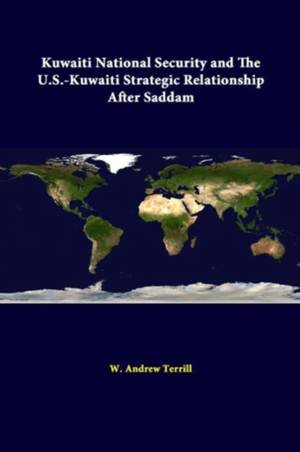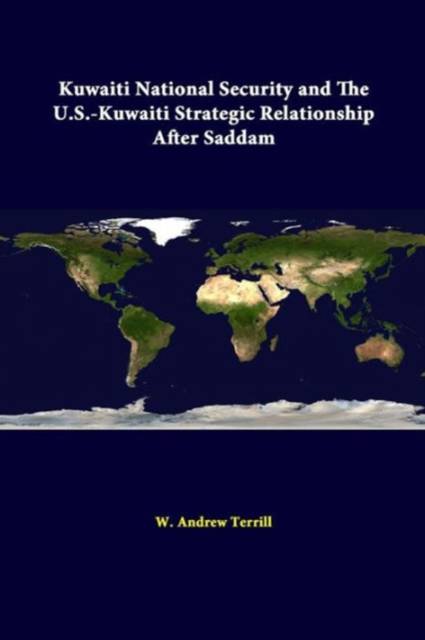
- Afhalen na 1 uur in een winkel met voorraad
- Gratis thuislevering in België vanaf € 30
- Ruim aanbod met 7 miljoen producten
- Afhalen na 1 uur in een winkel met voorraad
- Gratis thuislevering in België vanaf € 30
- Ruim aanbod met 7 miljoen producten
Zoeken
Kuwaiti National Security And The U.S. - Kuwaiti Strategic Relationship After Saddam
W Andrew Terrill, Strategic Studies Institute
Paperback | Engels
€ 24,45
+ 48 punten
Omschrijving
The United States has found no shortage of difficulties in recent years as it has moved forward in implementing its security policies toward the Middle East and especially the Persian/Arabian Gulf. Security threats resulting from an Iraq in turmoil and an assertive Iran are near the top of U.S. concerns about its future security. Efforts to deal with terrorism and to encourage and support the efforts of regional states to stem the rise of violent terrorist groups are also important. Kuwait, while a small country with a limited population, nevertheless has many of the same concerns as the United States in that part of the world. While Kuwait cannot act as a major regional power, it can nevertheless still serve as a valuable ally, whose contributions to regional security and democratization should not be overlooked. These contributions center on strategic geography, economic strength, and a willingness to host U.S. forces that is long-standing in a region where such actions can sometimes be seen as...
Specificaties
Betrokkenen
- Auteur(s):
- Uitgeverij:
Inhoud
- Aantal bladzijden:
- 118
- Taal:
- Engels
Eigenschappen
- Productcode (EAN):
- 9781312296572
- Verschijningsdatum:
- 21/06/2014
- Uitvoering:
- Paperback
- Formaat:
- Trade paperback (VS)
- Afmetingen:
- 152 mm x 229 mm
- Gewicht:
- 181 g

Alleen bij Standaard Boekhandel
+ 48 punten op je klantenkaart van Standaard Boekhandel
Beoordelingen
We publiceren alleen reviews die voldoen aan de voorwaarden voor reviews. Bekijk onze voorwaarden voor reviews.











